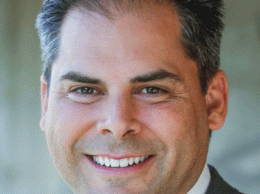By Megan McArdle
As one of my favorite political experts is fond of saying, “Obama acts like he’d really rather be an ex-president.” On Nov. 4, he sort of got his wish. There’s no third-act rally to hope for now. The One True Hero is not going to vanquish the unexpectedly tenacious supervillain. The last two years of Barack Obama’s presidency will be spent with a solid Republican majority in both houses of Congress, one delivered, in large part, by voters’ discontent with Obama himself.
If there is one thing that Obama should regret most deeply, it was this fateful quote: “Elections have consequences,” he said. “I won.” Republican intransigence has stymied the president for four years.
But the seeds of that revolution were laid in the first two years of Obama’s term, when giddy Democrats decided that he was the second coming of FDR, and Republicans would just have to go along with the Democratic agenda or get left behind. “Bipartisanship” involved gracious offers to let them fiddle with minor details of various plans — the policy equivalent of being allowed to choose the drapes for your maiden cruise on the Titanic. And when Republicans protested, they were bluntly told their input wasn’t necessary, “thank you very much and goodbye.”
His presidency has never recovered from that mistake. The Tea Party Republicans who unnecessarily brought the government to a halt, and double-unnecessarily cost their own party many key elections, have much to answer for. But the Democrats who helped create them have some accountability, too. Democrats who try to attribute all the backlash to Republican racism are fooling themselves, setting themselves up for future repeats of these mistakes.
Republicans, too, should be taking note. Even if they do manage to secure the presidency in 2016, they should remember that the wheel goes ’round and ’round, and sooner or later, the fly on top is going to be the fly on the bottom.
Obama was not FDR’s divine heir, and the next Republican will not be the modern-day Ronald Reagan. The country faces deep problems: stagnant wage growth at the bottom, lackluster mobility between economic classes, a budget that will soon groan under the accumulating weight of entitlements, a stark partisan divide that makes everything else harder to fix. After the last 15 years, both parties are thoroughly implicated in these problems. The voter discontent that threw the other bums out will just as soon be laser-focused on you.
Both parties are going to have to swallow their pride (and their rage), bid a fond farewell to their dreams of perfect ideological purity, and figure out how to work with the other side if they want to get anything done. Because neither party is going to have control of anything long enough to force their own sublime vision upon the public. Any successes along those lines will be, as Obama’s was, a quasi-pyrrhic victory.
But enough about the past. Obama still has much to comfort him: His overreach may have helped provoke a grim backlash, but it also got him a historic health-care bill that will have progressives singing his name unto the generations … and maybe Americans, too, after enough time passes for them to forget they were mad. Perhaps he will judge that a worthy trade-off; I well might, in his position, however unpleasant it makes the next two years. His approval ratings are also much better than those of his predecessor.
He can burnish this legacy further by trying to actually work with Republicans over the next two years to accomplish something they can agree on. The most fruitful area for this is, as other commentators have noted, in the realm of trade — Republicans are probably more open than Democrats were to the fast-track authority the president needs to negotiate new deals. I can even see a world in which he gets some concession on the minimum wage, along with an earned income tax credit expansion. But it will have to be in exchange for something that Republicans actually want, not some “Republican” plan that was once suggested by one think-tank staffer but is now widely reviled by the actual politicians in Congress.
If I were a Republican adviser, I would advise them, too, to restrain their friskier instincts. I mean, hey, guys, congrats! Historic victory in the House! A thorough drubbing of the opposition! You still have to face voters in two years, and while Obama will still be a factor in that election, he won’t be nearly as big a factor. You’re going to need an agenda that goes beyond “no” and “We hate him.” So if Obama sincerely offers to work with you, understanding that he is now in the weaker negotiating position, take the olive branch and do something that both of you can live with. If he goes to war, do not raze the enemy’s cities and salt the earth you both hope to farm.
Realistically, the best that either party, or the American public, can hope for is small ball. Pass a few small fig-leaf initiatives that give everyone something to take to the voters in 2016, while allowing Hillary Clinton to claim that we need a hands-on political expert to actually make big progressive policy again and the Republicans to claim that they need the presidency as well as Congress to really get things done.
I’m not exactly wildly enthusiastic about this prospect. But I’m positively passionate when I compare it to alternative possibilities where Obama says “To hell with it” and makes free with Executive Orders of Dubious Legality, and Republicans retaliate with the Blunderbuss of Impeachment. We have a moment where both parties could take a deep breath, take a long, hard look at reality, and decide to make the best of things as they are. Let’s not squander that moment on impossible dreams of total victory after total war.
• Megan McArdle writes for Bloomberg News. Reach her at mmcardle3@bloomberg.net.






 Print
Print Email
Email

















